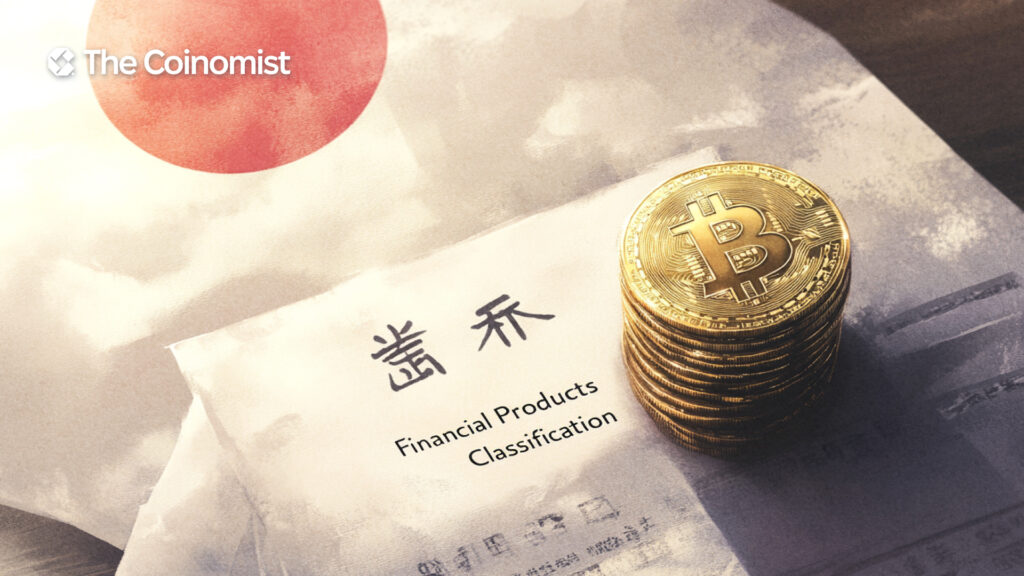Japan to Place Crypto Under Insider Trading Restrictions With a New Bill

New Japan crypto regulations aim to classify cryptocurrencies as financial products, tightening insider trading restrictions, according to Nikkei Asia.
On this page
Japan's Financial Services Agency (FSA) is preparing to introduce a bill in 2026 aimed at amending the Financial Instruments and Exchange Act. The proposed amendment seeks to establish clearer regulatory frameworks for cryptocurrencies, treating them more like traditional financial products.
Under the new bill, in Japan, crypto would be subject to insider trading regulations that currently apply to stocks, bonds, and other traditional financial products. This would make it illegal to trade cryptocurrencies based on non-public information. Legal consequences for anyone violating these rules will be outlined as part of the bill, though specific penalties are still to be confirmed.
As reported by Nikkei Asia, the initiative has been in development through a series of closed-door meetings among industry experts, policymakers, and regulators. These discussions have focused on how to adapt Japan's existing financial laws to accommodate the rapidly growing and evolving crypto market.
While the rules surrounding insider trading for traditional financial products like stocks and bonds are well-established, the regulatory landscape for crypto trading remains less defined. In response, the FSA is taking steps to clarify these regulations and ensure that crypto markets are subject to similar levels of scrutiny and transparency as traditional financial markets.
The Status of Crypto Regulations in Japan
Recent developments in Japan's crypto market regulations indicate that the country is adapting to technological changes by balancing the growth of its crypto industry with the need for customer protection rules.
Although the exact implementation of these regulatory changes remains unclear, the reforms are eagerly awaited by both crypto investors and industry leaders. There is growing optimism that the updates will provide greater clarity and stability, encouraging further investment in the sector.
Earlier, in February 2025, Japanese regulators proposed a new framework aimed at simplifying the process for launching Bitcoin and Ether Exchange-Traded Funds (ETFs) under the Financial Instruments and Exchange Act. If approved, this framework could mean the first Japanese Bitcoin ETF is on the horizon.
Another key proposal that Japan is currently considering is a significant reduction in the tax rate on crypto gains. Currently set at 55%, the proposed reduction to 20% would bring Japan more in line with global standards and potentially make the country an even more attractive destination for crypto investors.
This initiative was put forward by Japan’s Liberal Democratic Party (LDP) in early March 2025, alongside a suggestion to treat cryptocurrencies as a new, separate asset class, distinct from traditional securities. This would help to create a more tailored regulatory environment for digital assets, acknowledging their unique characteristics and potential.
In December 2024, Japan's Liberal Democratic Party established a new ‘Web3 Working Group' under the Digital Society Promotion Headquarters. The group’s goal is to propose reforms that could improve Japan’s competitiveness in the crypto and Web3 space.
Japan’s ongoing crypto regulation developments align with the broader progress globally, reflecting a worldwide trend toward more structured and supportive frameworks for digital assets.
The content on The Coinomist is for informational purposes only and should not be interpreted as financial advice. While we strive to provide accurate and up-to-date information, we do not guarantee the accuracy, completeness, or reliability of any content. Neither we accept liability for any errors or omissions in the information provided or for any financial losses incurred as a result of relying on this information. Actions based on this content are at your own risk. Always do your own research and consult a professional. See our Terms, Privacy Policy, and Disclaimers for more details.























